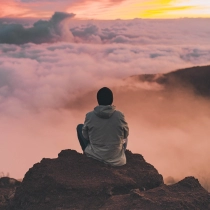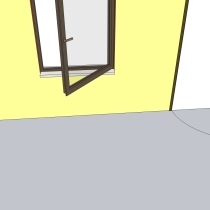To journal, you don't really have to write a lot, and what you write doesn't have to be correctly spelled or grammatically correct. The goal is to just write down what ever is in your mind to try and help you understand it better.
What you write is intended for you, and not for any kind of presentation, so even if you do not like writing, or you think what you write is not good, it doesn't matter, because it is for you.
Some people who are new to journaling tend to go a little bit over the top and write whole pages, sometimes because they actually have things to write about, other times, because they think they need to keep writing and fill up a whole page or two. There is no specific amount of words or pages that you need to write to journal. Even writing something as short as "Today was a good day" can be enough to capture what you are feeling and want to write down in that moment. So don't think that you have to write a lot to make journaling work for you.
Diaries are typically seen as a way to record your day. A journal, on the other hand, is viewed more as a way to reflect on your day.
For many people, they are the same or may sound the same, but they are quite different. A diary is typically a notebook where you keep a record of your day, the events that occurred during that day, and even your thoughts on those events. Journaling is when you actually reflect on these things.
When you journal, you may also write down events that occurred during your day, but the purpose is to actually write down your thoughts, feelings, and emotions about those events. You write them down to better understand them, so you take the time to actually think about them and reflect on them.
Meditation can help with stopping bad habits because it trains you to have better control over your mind, thoughts, and desires, which means that you will be better able to break bad habits by controlling your behavior, addictions, cravings, or what ever else is causing these bad habits.
Meditation helps train you to control your mind better by increasing your ability to focus on a single thing, be it an object, thought, sound, or anything else. This is in contrast to how peoples minds usually work, which is to just wander off into thoughts, and many times, harmful thoughts. This can cause stress, anxiety, depression, and can encourage bad habits.
Being more in control of your mind will allow you to have more control over your chain of thoughts, it will allow you to prevent your mind from wandering off and thinking about things you do not want it to, which can also help keep your mind off of the bad habits, and focus on creating new, better habits.
Meditating first thing in the morning is a great way to ensure that you keep a consistent meditation practice, especially if you find it difficult to fit a meditation session in your schedule later on in the day.
Though, if you try meditating first thing in the morning while still feeling very tired, you may feel that you actually can't meditate because you are just too tired, and may even find yourself slightly falling asleep during the session. For some, this doesn't happen or is very minor and may even start to feel more awake during the session, for others, it may be best to walk around a little bit or to do something that will wake you up enough so that you can actually meditate.
Meditating first thing in the morning is also a great way to start your day, as you will start it with a much calmer mindset, and this can be the starting point for the rest of your day, leading to a calmer, more relaxed and mindful attitude, which can help reduce much of the stresses of the following day.
The place that helps you calm down, be centered, and focused. For some, this is a quiet and dark room or space, for others, this can be a spot in a forest. There is no specific rule or location that is best for meditation. It is up to you and what makes you feel the most comfortable, peaceful, mindful, and focused.
You can experiment with different locations, as well as meditation types. Maybe a walk in a forest or in nature will help you calm down, relax, and get into a meditative state. Or maybe finding a spot in that forest or in nature. Many people like meditating near rivers or streams, as the sound of the flowing water calms them down and eases their minds.
Try different things, different locations, see what works best for you.
Yoga actually can be a pretty difficult exercise, in contrast to what many people believe.
While it is generally a more slow paced exercise that mainly utilizes your body weight, it can still be a very difficult workout.
Yoga uses muscles you may not actually use on a daily basis or in other sports, and it puts you in positions that are quite difficult to hold for those that are not used to it or new to yoga.
In addition to the difficulty on the muscles in terms of holding positions, yoga also puts you in positions that require more flexibility than you may have. These poses may stretch your muscles in ways that cause slight pain or discomfort, just as stretching before or after exercises.
If the pain you are feeling is different or is more intense, then it may actually be a more serious reason and is something that should be checked. You can ask the yoga instructor about this pain, it may be a sore muscle, or a weakness in some muscles, in this case, they can give you different poses or variations of the poses for you to do until you build the strength and flexibility to be able to do the original pose.










